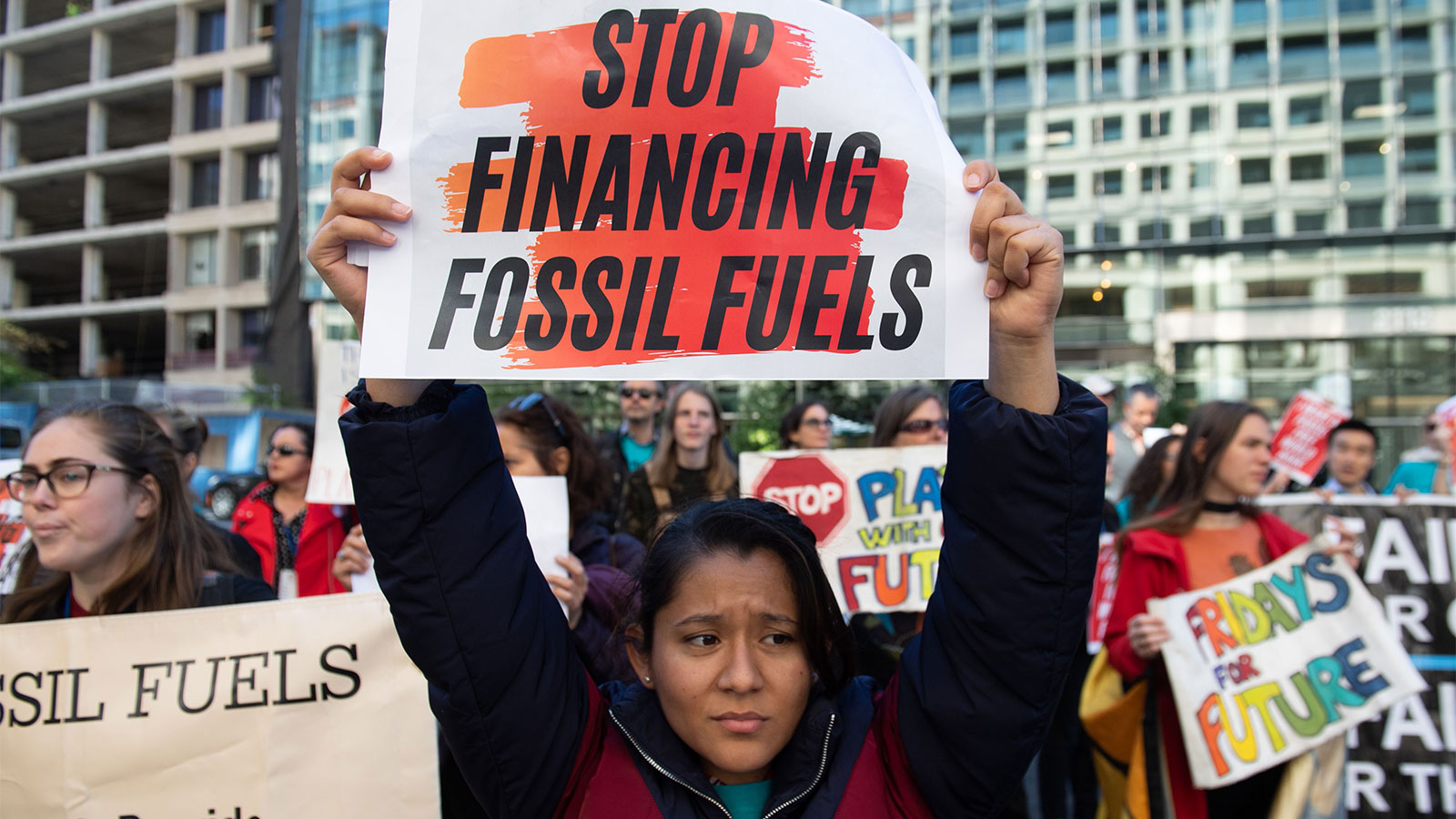It‚
It‚Äôs not just oil and gas companies that are causing the climate crisis — the financial sector has played a role, too. A new report from the environmental advocacy group Women‚Äôs Earth and Climate Action Network International, or WECAN, outlines connections between the banks, asset managers, and insurance companies that finance oil and gas development and the damage inflicted by the fossil fuel industry — in particular to women, hitting women of color hardest. It also lays out how the financial sector can clean up its act.
The report examined projects that produce significant harm to frontline communities in the United States and parts of Canada, ranging from intensive oil extraction in Kern County, California, to the construction of Minnesota‚Äôs Line 3 pipeline, to chemical plants in St. James Parish, Louisiana, an area known as ‚Äėcancer alley.‚Äô It then identified the financial institutions that enabled those projects through both direct and corporate-level financing, including the banks that funded those projects, the asset managers that invested in them, and the insurance companies that underwrote them.
Based on an examination of 30 companies, the report identified eight fossil fuel companies — Enbridge, Chevron, Shell, Formosa, Total SE, Marathon Petroleum, Occidental Petroleum, and Exxon Mobil — as the worst actors in terms of damage to communities. It also flagged seven financial institutions — Bank of America, BlackRock, Capital Group, JP Morgan Chase, Liberty Mutual, Bank of Canada, and Vanguard — as the main financiers of those companies. This financing stands in stark contrast to the Environmental, Social, and Corporate Governance commitments these institutions made when publicly committing to voluntary standards such as the UN‚Äôs Principles for Responsible Investment (which have been adopted by Vanguard, BlackRock, Capital Group, Royal Bank of Canada, and Liberty Mutual) and the Equator Principles (accepted by Bank of America, Royal Bank of Canada, and JP Morgan Chase), investment frameworks that are meant to prioritize human rights and reduction of carbon emissions.
‚ÄúThis report is really important because it goes beyond fossil fuel companies themselves and puts a spotlight on the financial institutions,‚ÄĚ said Derek Seidman, a research analyst from the Public Accountability Initiative who was not involved in the report. ‚ÄúIt really shows how Wall Street — the banks, the money managers, the investors — are systematically financing and propping up environmental injustice.‚ÄĚ
The report also documented the ways that these projects hit women — in particular, women of color — first and hardest, in terms of exposure to contaminated water and air, which can produce specific risks of breast and ovarian cancer, impacts on birth outcomes, and risk of sexual violence due to the presence of labor camps surrounding oil and gas infrastructure. ‚ÄúThere are specific effects on women‚Äôs bodies, and their health, and their safety, and their social and economic conditions,‚ÄĚ said Osprey Orielle Lake, founder of WECAN. ‚ÄúIf we want to truly address the climate crisis we must lead with climate justice and that means understanding the gendered and racial impacts of the fossil fuel industry,‚ÄĚ she added in an email.
Lake told Grist that the report was motivated by organizing around divestment that followed the Dakota Access Pipeline protests at Standing Rock. ‚ÄúThere was a lot of need to do something after Standing Rock to continue that fight and that struggle,‚ÄĚ she said.
The report includes a specific set of recommendations for Wall Street about how it can improve its decision-making when it comes to environmental justice and climate change, including ending financing and insurance of fossil fuel companies and infrastructure. It also calls on Wall Street to stop financing companies without ‚Äúa clear and explicit timeline to align with limiting global warming to 1.5 degrees C.‚ÄĚ Lake hopes the report will produce steps towards divestment from the financial institutions identified. ‚ÄúWhat we cannot do,‚ÄĚ she said, ‚Äúis to continue as we are.‚ÄĚ
Correction: This article originally misidentified the Women’s Earth and Climate Action Network International and misspelled Derek Seidman’s last name.



